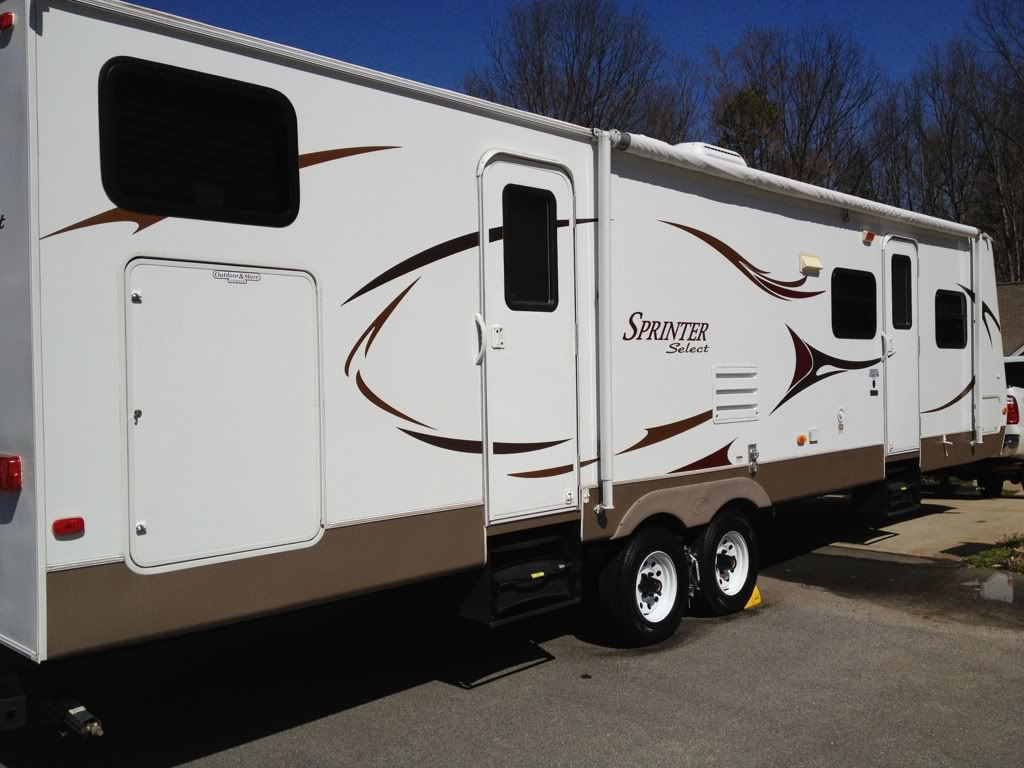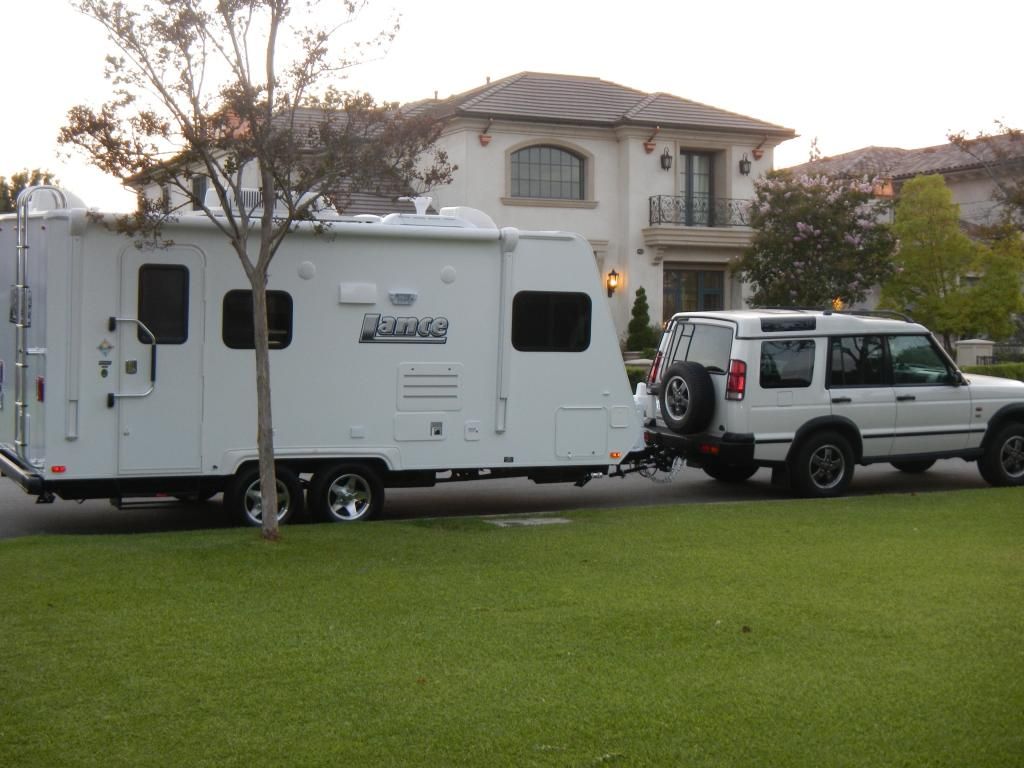Forum Discussion
- VeebyesExplorer II
Bit Bucket wrote:
Veebyes wrote:
Bit Bucket wrote:
Veebyes wrote:
Because if multiple colours were available the dealer would never have the right one to satisfy 'she who must be obeyed' on the lot.
Colours, especially dark colours, do not stand up well in the sun. The chalking shows up much earlier if not maintained hence the reason most boats, especially big ones, are white.
What the heck is "colour" ;)
It is the English way of spelling the American way of spelling the English word color. If I spelt colour, color my spelling teacher would mark me wrong. Understand better now?
d
I knew I should have Googled it... :) :W
"Most words ending in an unstressed -our in British English (e.g. colour, flavour, harbour, honour, humour, labour, neighbour, rumour) end in -or in American English (color, flavor, harbor, honor, humor, labor, neighbor, rumor). Wherever the vowel is unreduced in pronunciation, e.g. contour, velour, paramour and troubadour the spelling is the same everywhere.
Most words of this kind come from Latin non-agent nouns having nominative -or. These words were first borrowed into English from early Old French and the ending was spelled -or or -ur.[5] After the Norman conquest of England (1066), the ending became -our in Anglo-French to try to represent the Old French pronunciation,[6] though color has sometimes been used in English since the 15th century.[7] The -our ending was not only used in English borrowings from Anglo-French, but was also applied to the earlier borrowings that had used -or.[5] After the Renaissance, new borrowings from Latin were taken up with their original -or ending and many words once ending in -our (for example, chancellour and governour) went back to -or. Many words of the -our/or group do not have a Latin counterpart; for example, armo(u)r, behavio(u)r, harbo(u)r, neighbo(u)r; also arbo(u)r, meaning "shelter", though senses "tree" and "tool" are always arbor, a false cognate of the other word. Some 16th- and early 17th-century British scholars indeed insisted that -or be used for words from Latin (e.g. color[7]) and -our for French loans; but in many cases the etymology was not clear, and therefore some scholars advocated -or only and others -our only.[8]
Webster's 1828 dictionary had only -or and is given much of the credit for the adoption of this form in the United States. By contrast, Johnson's 1755 dictionary used -our for all words still so spelled in Britain (like colour), but also for words where the u has since been dropped: ambassadour, emperour, governour, perturbatour, inferiour, superiour; errour, horrour, mirrour, tenour, terrour, tremour. Johnson, unlike Webster, was not an advocate of spelling reform, but chose the spelling best derived, as he saw it, from among the variations in his sources. He preferred French over Latin spellings because, as he put it, "the French generally supplied us".[9] English speakers who moved to America took these preferences with them, and H. L. Mencken notes that "honor appears in the 1776 Declaration of Independence, but it seems to have got there rather by accident than by design. In Jefferson's original draft it is spelled honour."[10] In Britain, examples of color, flavor, behavior, harbor and neighbor barely appear in Old Bailey court records from the 17th and 18th centuries, whereas there are thousands of examples of their -our counterparts.[11] One notable exception is honor. Honor and honour were equally frequent in Britain until the 17th century;[12] Honor still is, in the UK, the usual spelling as a person's name.
"
You know, all of that blah, blah, blah is very nice but I think I explained it in a much more concise, easy to understand way :) - motorcycle_jackExplorer IICause people think their white one is: bigger, lighter, easier to pull, needs a smaller truck and smaller tires than one of another color (colour). :)
- atreisExplorerWhite is cooler and less expensive. AC units have become effective and plentiful, as has the electric needed to run them at many campgrounds, so many trailers are now using darker colors. White is STILL cooler and less expensive. Just because one can consume more power doesn't mean one should.
That said, we saw an Open Range last weekend, and it was really pretty - a big part of that was the all-glass almost-flush windows. Went to their website - it's a shame - they're all big and heavy, including their "light" trailers. - deleted-2ExplorerSince our hair turned gray we thot a matching fifth wheel would be good...
- wbwoodExplorerNo more white for us! From this ...

to this...
- bakerkidsExplorerI have no problem finding my trailer in a campground (unless, of course, it's behind a bigger rig...and 99% are bigger) :C

- John___AngelaExplorer
WoodGlue wrote:
As the owner of a 99% white (no decals even) RV, I'll still say that it's hot inside! LOL
WoodGlue
Right on woodglue. Go NEKED or stay home.
- Bit_BucketExplorer
Veebyes wrote:
Bit Bucket wrote:
Veebyes wrote:
Because if multiple colours were available the dealer would never have the right one to satisfy 'she who must be obeyed' on the lot.
Colours, especially dark colours, do not stand up well in the sun. The chalking shows up much earlier if not maintained hence the reason most boats, especially big ones, are white.
What the heck is "colour" ;)
It is the English way of spelling the American way of spelling the English word color. If I spelt colour, color my spelling teacher would mark me wrong. Understand better now?
I knew I should have Googled it... :) :W
"Most words ending in an unstressed -our in British English (e.g. colour, flavour, harbour, honour, humour, labour, neighbour, rumour) end in -or in American English (color, flavor, harbor, honor, humor, labor, neighbor, rumor). Wherever the vowel is unreduced in pronunciation, e.g. contour, velour, paramour and troubadour the spelling is the same everywhere.
Most words of this kind come from Latin non-agent nouns having nominative -or. These words were first borrowed into English from early Old French and the ending was spelled -or or -ur.[5] After the Norman conquest of England (1066), the ending became -our in Anglo-French to try to represent the Old French pronunciation,[6] though color has sometimes been used in English since the 15th century.[7] The -our ending was not only used in English borrowings from Anglo-French, but was also applied to the earlier borrowings that had used -or.[5] After the Renaissance, new borrowings from Latin were taken up with their original -or ending and many words once ending in -our (for example, chancellour and governour) went back to -or. Many words of the -our/or group do not have a Latin counterpart; for example, armo(u)r, behavio(u)r, harbo(u)r, neighbo(u)r; also arbo(u)r, meaning "shelter", though senses "tree" and "tool" are always arbor, a false cognate of the other word. Some 16th- and early 17th-century British scholars indeed insisted that -or be used for words from Latin (e.g. color[7]) and -our for French loans; but in many cases the etymology was not clear, and therefore some scholars advocated -or only and others -our only.[8]
Webster's 1828 dictionary had only -or and is given much of the credit for the adoption of this form in the United States. By contrast, Johnson's 1755 dictionary used -our for all words still so spelled in Britain (like colour), but also for words where the u has since been dropped: ambassadour, emperour, governour, perturbatour, inferiour, superiour; errour, horrour, mirrour, tenour, terrour, tremour. Johnson, unlike Webster, was not an advocate of spelling reform, but chose the spelling best derived, as he saw it, from among the variations in his sources. He preferred French over Latin spellings because, as he put it, "the French generally supplied us".[9] English speakers who moved to America took these preferences with them, and H. L. Mencken notes that "honor appears in the 1776 Declaration of Independence, but it seems to have got there rather by accident than by design. In Jefferson's original draft it is spelled honour."[10] In Britain, examples of color, flavor, behavior, harbor and neighbor barely appear in Old Bailey court records from the 17th and 18th centuries, whereas there are thousands of examples of their -our counterparts.[11] One notable exception is honor. Honor and honour were equally frequent in Britain until the 17th century;[12] Honor still is, in the UK, the usual spelling as a person's name.
" - Winged_OneExplorer
sandtsherman wrote:
As you can see by our signature, we have a brown one. We bought it because of the layout and features. They did not carry the same unit in white.
Also, it's easier to find at the campground btween all of the white ones! ;)
LOL So true!!
I never would have ordered the extra cost paint, but it was a leftover unit that cost less than a new white one. - relaxinExplorerwas it not Hank Ford who said when asked about his model T,,, "you can have any color you want so long as its black"
About RV Newbies
4,026 PostsLatest Activity: Jun 15, 2017